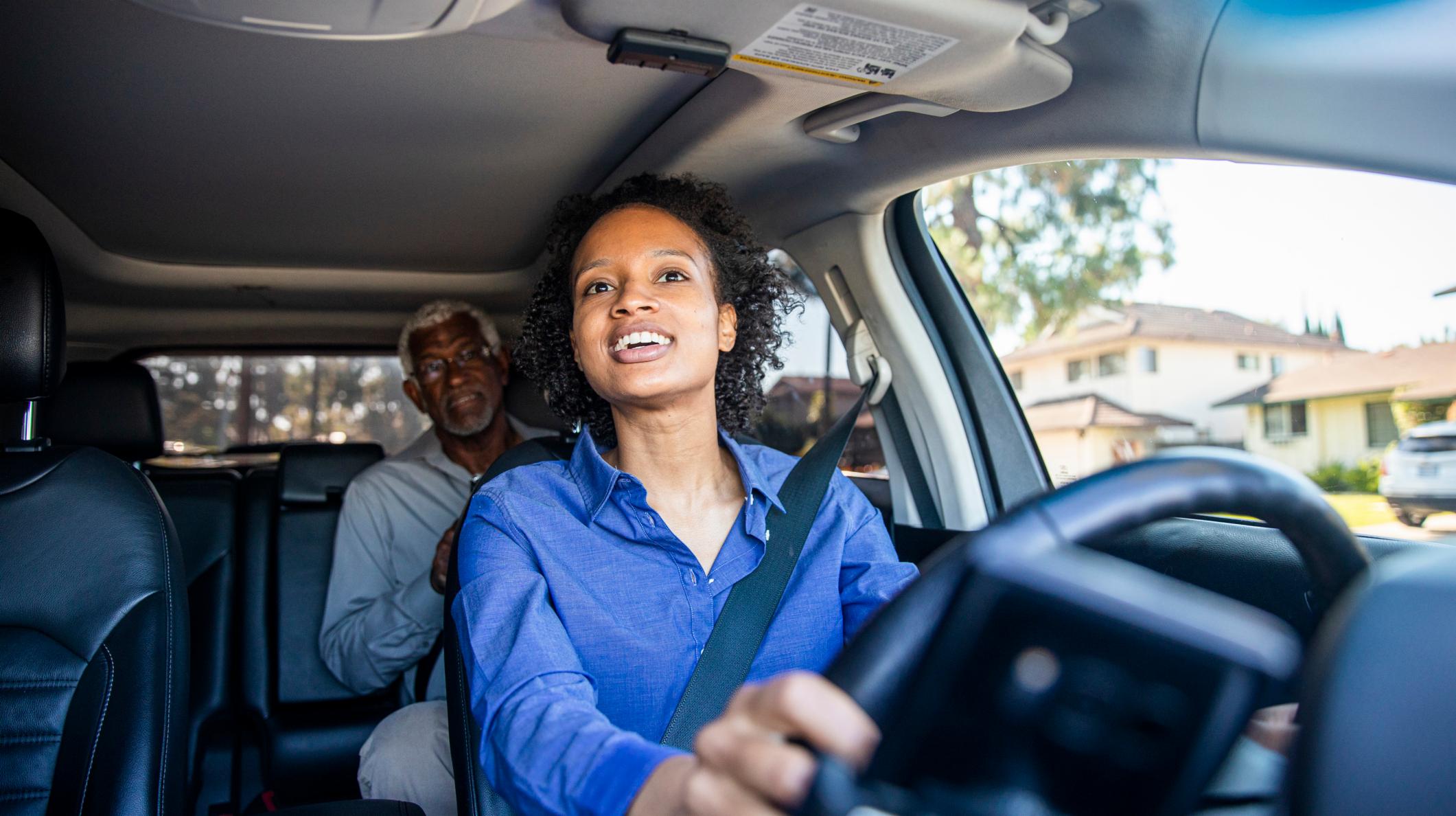Workers’ rights should apply to Uber and Lyft, too, says Professor Norlander

Professor Peter Norlander’s research on ethical labor practices was sparked by his work in India—and recently collided in Chicago with ride-sharing services Uber and Lyft.
Norlander’s research focuses on measuring workers’ ability to exercise a fundamental right: the right to quit. Early in his career, Norlander worked in human resources for an information technology (IT) consulting firm that brought large numbers of temporary guest workers to the U.S., and he grew troubled by the power firms had over workers.
When Norlander went to graduate school, he focused on measuring firm power and workers’ ability to change jobs, or their mobility. His publications on guest-worker mobility and immigration have found that many of the labor markets for guest workers feature little competition between employers, and that firm power grows during recessions, but that guest workers are still largely able to quit and that regulations prevent firms’ from using all their power.
From guest workers to gig drivers
After becoming a professor at Loyola, he began looking at the U.S. gig economy, wondering specifically about the mobility of the freelance drivers for ride-sharing services Uber and Lyft.
“Chicago has the second-largest taxi market in the U.S., which has been heavily impacted by the arrival of Uber and Lyft. What really got my attention is the claim that gig economy employers like Uber and Lyft don’t control workers,” Norlander says. “They argue that unhappy drivers can just switch to a competitor app. They argue that ‘we just provide the technology, we’re not an employer. Therefore, we don’t have to pay taxes, workers comp, or be responsible for harassment or violence, and more.’
“But they do monitor driver behavior, set prices, and schedule drivers—who often work for 8 to 12 hours at a time—like a company scheduling workers,” he continues. “They want all the benefits of a stable workforce and none of the responsibilities of employers. And there’s no evidence available about how much these workers actually can and do exercise their right to quit.”
Norlander decided to dig into these issues and evaluate them empirically.
Blocked by Uber and Lyft
To begin his research, Norlander requested information on Uber and Lyft drivers from the City of Chicago. Like taxi drivers, Uber and Lyft drivers are licensed by the city and display their city licenses in their vehicles. But unlike taxi drivers, who are publicly listed online by the city, the names of ride-share drivers are not public.
Uber and Lyft argue that their driver names are “trade secrets” and should not be publicly available, as it might lead to “poaching” by their competition. Under the threat of a lawsuit from the companies, the City of Chicago agreed. Read the Bloomberg news article →
“Competition is a force that improves wages and conditions,” he says. “Companies should take positive steps like raising wages to retain workers. But instead, Uber argues that laws shouldn’t apply to them, and tries to block the exits. That’s wrong.”
Without this driver information, Norlander couldn’t conduct his planned research study, but he did go forward with another idea involving collecting unique data in the field that compares driver perceptions of managerial control between taxi, Uber, and limousine drivers. That paper is currently under review.
The need for human resources
Despite their claim to not be employers, Uber and Lyft are finding they must implement human resources practices into their work environments and provide support for their drivers. In field experiments, Norlander found that drivers report greater feelings of control when driving for Uber compared to driving for a taxi or limousine company.
According to Norlander, the managerial controls exercised by Uber and Lyft reduce driver uncertainty, and increase feelings of confidence and efficacy due to immediate and largely positive feedback. The gig companies also offer incentives for drivers to work specific shifts and have been adding benefits typical of an employer.
“Workforce turnover isn’t good for business, and better HR practices retain better drivers and improve the quality of service,” says Norlander. “If they treated their drivers more like employees, they would offer safer and better service, and have a more sustainable business model.”
California recently passed a law that would require many gig companies to treat their workers as employees, and other states are looking at the same question. Regardless of how Uber, Lyft, and other gig companies choose to evolve, according to Norlander, workers’ rights must be part of this evolution.
In the media
Norlander was interviewed about Uber by these media outlets: